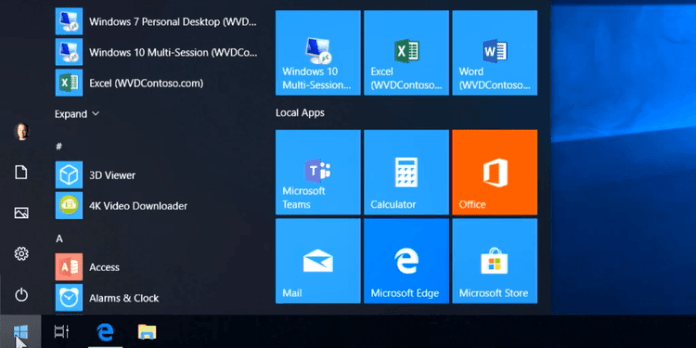As more and more companies adopt hybrid work models that combine remote and in-office work, the need for technology solutions that support this new way of working becomes increasingly important. Linux hosted virtual desktops are one such solution that offers many benefits for businesses looking to create a flexible and secure work environment. In this article, we will explore the advantages of Linux hosted virtual desktops in hybrid work environments, best practices for implementing them, use cases, challenges and considerations, and future trends and developments.
Advantages of Linux Hosted Virtual Desktops in Hybrid Work Environments
One of the primary advantages of Linux hosted virtual desktops is the ability to access workspaces and applications remotely. This means that employees can work from anywhere with an internet connection, whether it’s from home, a coffee shop, or on the go. This flexibility can help businesses attract and retain top talent, while also increasing productivity and reducing costs associated with maintaining physical workspaces.
Another key advantage of Linux hosted virtual desktops is secure data management and protection. With all data stored on servers and not on individual devices, businesses can ensure that sensitive information is not compromised in the event of lost or stolen devices. Additionally, regular backups and security updates can be performed automatically, reducing the risk of data loss or cyber attacks.
Centralized IT management and support is also a major benefit of Linux hosted virtual desktops. With a single interface, IT teams can manage user access, software updates, and other maintenance tasks, regardless of where employees are working from. This streamlines the IT support process, allowing for quicker response times and less downtime for employees.
Finally, Linux hosted virtual desktops are cost-effective and scalable solutions for businesses of all sizes. Instead of investing in expensive hardware and software licenses, businesses can simply pay for the virtual desktop services they need, as they need them. This allows for greater flexibility and scalability, as businesses can easily add or remove users as needed, without significant upfront costs.
Best Practices for Implementing Linux Hosted Virtual Desktops in Hybrid Work Environments
To ensure a successful implementation of Linux hosted virtual desktops in a hybrid work environment, businesses should follow these best practices:
- Assess business needs and requirements: Before selecting a Linux hosted virtual desktop solution, businesses should evaluate their needs and requirements to ensure that the solution is a good fit.
- Choose the right Linux hosted virtual desktop solution: There are many Linux hosted virtual desktop solutions available, each with its own set of features and capabilities. Businesses should choose a solution that best meets their needs and budget.
- Ensure compatibility with existing IT infrastructure: Businesses should ensure that the Linux hosted virtual desktop solution they choose is compatible with their existing IT infrastructure, including hardware, software, and network systems.
- Provide training and support for employees: Employees will need to be trained on how to use the Linux hosted virtual desktop solution, as well as how to troubleshoot common issues. Providing adequate training and support will ensure a smoother transition to the new work environment.
Use Cases for Linux Hosted Virtual Desktops in Hybrid Work Environments
Linux hosted virtual desktops can be used in a variety of ways to support hybrid work environments. Some of the most common use cases include:
- Supporting remote and distributed teams: Linux hosted virtual desktops allow remote and distributed teams to access the same workspaces and applications, regardless of their physical location.
- Enabling flexible work arrangements and schedules: With Linux hosted virtual desktops, employees can work from anywhere at any time, making it easier to balance work and personal obligations.
- Facilitating collaboration and productivity across locations and time zones: Linux hosted virtual desktops make it easier for teams to collaborate on projects and share information, regardless of their location or time zone.
